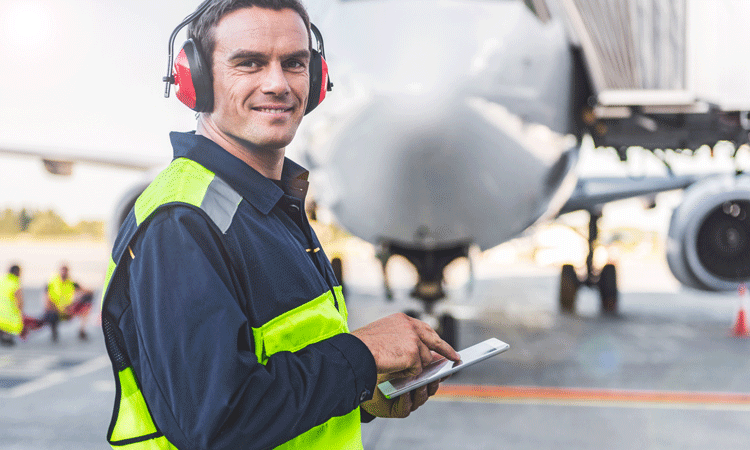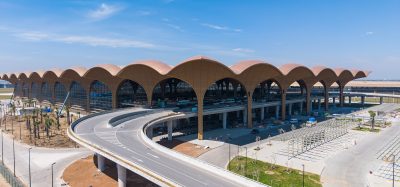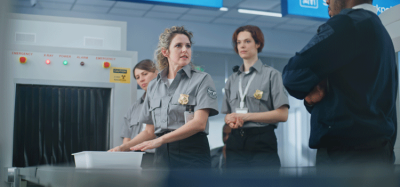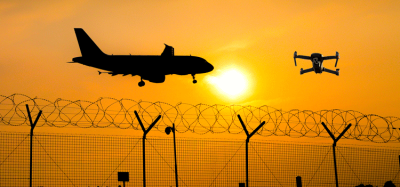Enhancing the wellbeing of the aviation industry
Posted: 4 October 2024 | Aleksandra Kapela | No comments yet
International Airport Review’s Editorial Assistant Emily Budgen attended V4+ Airports Association’s Women Innovation Day (WIND) conference held in Lake Bohinj, Slovenia. There she caught up with Aleksandra Kapela, Aviation Psychologist, about her work with airport employees and how the industry can attract and retain its workforce.


What was your route into the aviation industry?
My training was in occupational psychology, with a focus on competency development and stress management. My first exposure to aviation was meant to be a short-term assignment at a nearby flight school, but I soon developed a fascination with the industry and began to consider a career in it. After completing additional trainings in aviation psychology and human factors, I started MyWingman, a company that serves the aviation community and focuses on psychological evaluations and support. Through this initiative, I was able to collaborate directly with airlines, Pilots and airport employees, offering psychometric assessments, mental health support and enhancing the general wellbeing of the industry. My position has expanded over time to include research, training, consulting, support and the creation of wellbeing projects that are especially suited for the aviation sector. Additionally, I’ve become an advocate for these aviation areas, by becoming a speaker, writer and content creator.
What is the current wellbeing state of the aviation industry and has this changed since the COVID pandemic?
The state of the aviation sector has fluctuated significantly since the crisis caused by COVID-19. Initially, there was a significant negative impact on mental health due to the unpredictability, employment insecurity and irregular shifts in work hours. The pandemic increased fatigue, stress and anxiety in aviation sector personnel. On the positive side, though, things have begun to improve as the industry has begun to recover. Airports and airlines are now starting to understand how important mental health and wellbeing are, and as a result, they have implemented advanced support systems. These usually include mental health initiatives, resilience training and better access to psychological care. Although issues remain, the industry is making more efforts to enhance such important aspects such as wellbeing of the staff.
What is the effect of shift work on airport employees’ wellbeing?
Airport workers’ wellbeing can be greatly impacted by the shift work. Natural sleep cycles might be affected by irregular working hours, which usually results in fatigue and lower level of cognitive abilities. This may lead to higher levels of stress, unstable moods and an increased chance of mental health problems, including even more serious ones – like anxiety and depression. Furthermore, working non-traditional hours might lead to social isolation that affects social life and personal connections. It is extremely important to put into practice actions like encouraging healthy sleeping practices, making mental health resources available and introducing more education from this topic, minimising mental health support stigma and ensuring that shift schedules provide enough time for recovery and rest in order to help mitigate these impacts.
Join us live: Shaping the Next Generation of Hold Baggage and Air Cargo Screening
Join us live for an insightful webinar on 11th December at 14:00 GMT, in collaboration with Smiths Detection, as we explore the strategic balance of operational efficiency, regulatory compliance, and sustainability in high-volume security environments.
This session offers a focused look into future-proofing your security strategy.
Key learning points
- Cost Reduction: Strategies to minimize bag travel time while simultaneously reducing operational costs.
- Regulatory Roadmap: Insights into the next wave of regulatory changes and their impact on future investment decisions.
- Sustainable Systems: Practical approaches to building sustainability into security systems and lowering the total cost of ownership (TCO).
- Scalable Solutions: Real-world examples of scalable systems supporting current airport growth and preparing for tomorrow.
Register now for expert insights, case studies, and actionable strategies on operational efficiency!
Have you seen any airports where they are implementing strong wellbeing initiatives for their employees?
Actually, I have. A number of airports have taken the initiative to develop extensive personnel wellness programmes. For example, Schiphol Airport has implemented extensive psychological services, such as stress management classes and on-site counselling. Similar to this, Singapore’s Changi Airport offers a comprehensive wellness programme that includes frequent mental health check-ins, mindfulness training and fitness centres. These programmes recognise the special pressures connected to working in an airport setting and aim to assist staff members’ physical and emotional wellbeing.
In your experience, what is a common concern for employees of the aviation and airport sector?
A common concern among employees in the aviation and airport sector is the high level of occupational stress. This stress may come from various sources, including the demands of shift work, the need for constant vigilance and the pressure to maintain efficiency and safety in a fast-paced environment. The uncertainty of employment and the potential for significant disruptions, such as those experienced during the COVID-19 pandemic, also contribute to increased stress. Employees frequently worry about balancing their hectic schedules with their personal lives and finding time to rest and recover.
What practice needs to be reformed to improve the industry’s wellbeing?
To raise the level of wellbeing in the aviation industry, we need to make some key changes. First, it’s important to focus on regular mental health evaluations and develop support programmes tailored for aviation staff. We should also take a closer look at shift patterns to ensure that employees have enough time to rest and recover, as this can help reduce fatigue. Creating a workplace culture that supports discussions about mental health is crucial, enabling staff to seek assistance without feeling judged. Finally, providing training in stress management and effective communication can really help employees manage the specific challenges of their roles. By focusing on these issues, we can create a more supportive and healthier environment in the aviation industry.


C: Aleksandra Kapela
Aleksandra Kapela has over 10 years’ experience in providing psychological and psychometric assessments, working with those in the industry to conduct wellbeing reviews. Her role involves considering human and career factors for airport and aviation personnel. She is certified by the European Association for Aviation Psychology (EAAP) and holds a master’s degree in human resource management.
Stay Connected with International Airport Review — Subscribe for Free!
Get exclusive access to the latest airport and aviation industry insights from International Airport Review — tailored to your interests.
✅ Expert-Led Webinars – Gain insights from global aviation leaders
✅ Weekly News & Reports – Airport innovation, thought leadership, and industry trends
✅ Exclusive Industry Insights – Discover cutting-edge technologies shaping the future of air travel
✅ International Airport Summit – Join our flagship event to network with industry leaders and explore the latest advancements
Choose the updates that matter most to you.
Sign up now to stay informed, inspired, and connected — all for free!
Thank you for being part of our aviation community. Let’s keep shaping the future of airports together!
Related topics
Related airports
Amsterdam Airport Schiphol (AMS), Singapore Changi Airport (SIN)


















